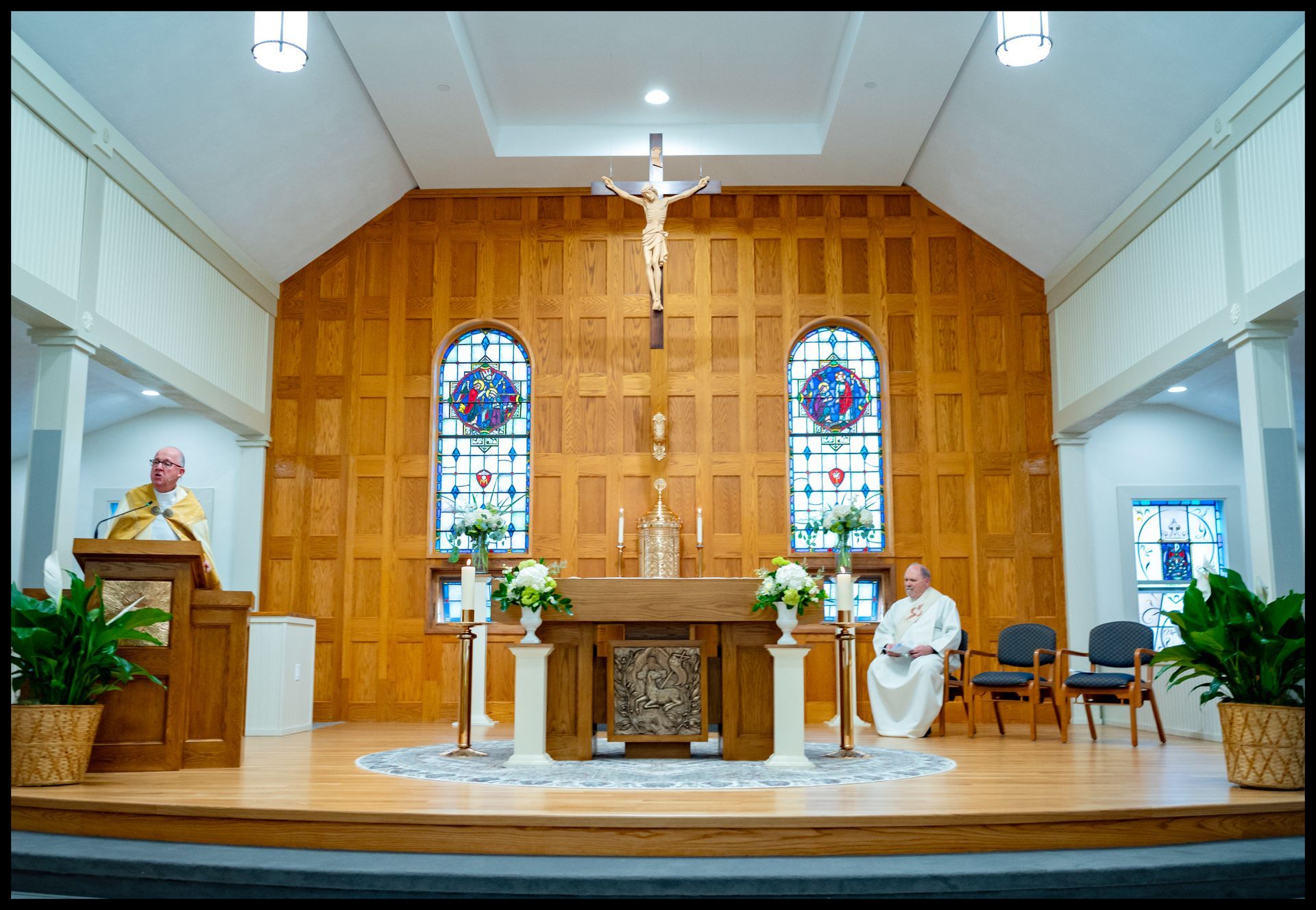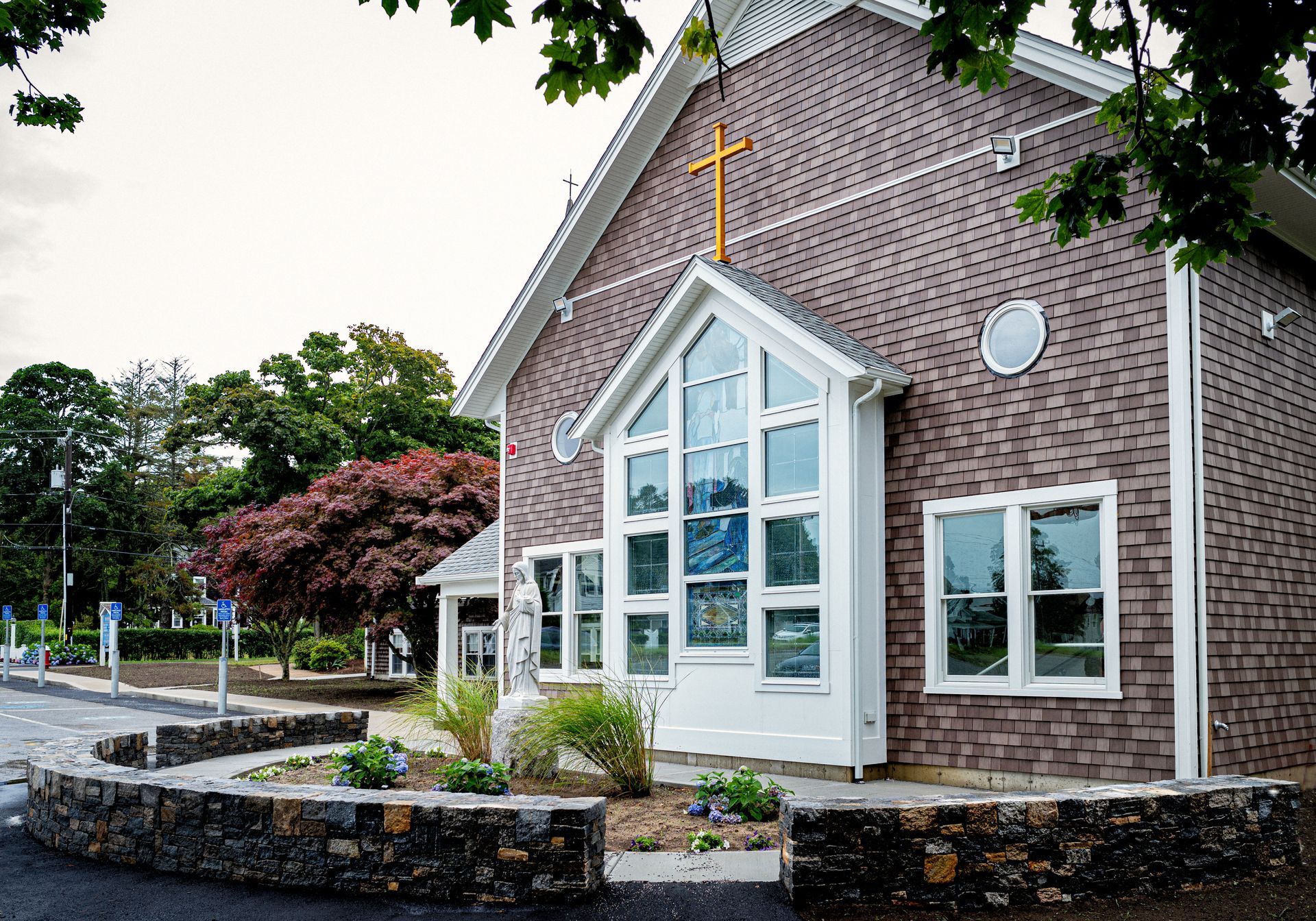16th Sunday of Ordinary Time Homily
16th Sunday of Ordinary Time- Fr. John Sullivan
I love being a Catholic! One thing that attracts me to our Catholic faith is we are “both and,” not “either or” people. That means, unlike some other Christian denominations, as Catholics we integrate two possibly conflicting concepts rather than choose one over the other.
The most prominent of those circumstances is the relationship between Scripture and Tradition. Unlike some Protestants, who believe, unless a church teaching has its source in the Bible, it can’t be considered revelation. Catholics believe some sacred truths come to us through Tradition with a capital “T.” While not specifically mentioned in the Bible these beliefs are still essential to our faith.
The most prominent of these is our Catholic belief in the perpetual virginity of the Blessed Mother. No place in the Bible is that tenet of our faith explicitly mentioned, but it is a truth passed down to us from the writings of the early Christians and is integral to our Catholic faith.
The tension between grace and nature is another. All Christians believe our salvation comes as a free gift from a merciful God, but Catholics believe human being also have a basic dignity and a natural capacity for good.
One of the most basic of these opposing concepts is the basis of our gospel message today. It is the struggle between faith and works. Catholics believe salvation is received as a gift of faith from God, but good works, an outcome of one’s faith in a loving response to God’s charity, are also needed for salvation.
Hopefully, we recall last week’s story of the Good Samaritan. A scribe approached Jesus and asked him one of the questions that were basic to evaluating a competent Rabbi. Luke wrote:
There was a scholar of the law who stood up to test him and said,
“Teacher, what must I do to inherit eternal life?”
Jesus said to him, “What is written in the law? How do you read it?”
He said in reply,
“You shall love the Lord, your God, with all your heart,
with all your being,
with all your strength,
and with all your mind, and your neighbor as yourself.”
He replied to him, “You have answered correctly; do this and you will live.”
The scribe went on to ask, “And who is my neighbor?”
Jesus then relates the famous parable of the Good Samaritan. The parable tells of a Jewish man set upon by robbers who left him near death. Two faithful Jews, a priest and a Levite passed by this suffering man because they were on their way to preform their religious duties in the Temple. Touching a dead body would make them unclean and ineligible to serve God. A Samaritan came by and despite the conflict between Jews and Samaritan took pity upon him and aided him back to health.
A paraphrase of 1 John 4:20 says, “You cannot love the God you cannot see unless you love the neighbor you can see.” That would seem to suggest Jesus places an emphasis on good works, love of neighbor over the need to worship God.
Luke balances that suggestion with today’s story of the conflict between the sisters Martha and Mary. In today’s gospel Jesus is not being a referee to settle a domestic squabble. No, the point of today’s story is, like last week, the balance between faith and works. Is it “either/or” or “both/and.” Jesus is being called upon to decide which of the roles of a disciple is most important, listening or service? This was a very important question for the early Church and for us. How do we balance prayer and good works, worship or action?
Jesus comes down on the side of being attentive to the individual before trying to help them. The first act of hospitality needs to be taking the opportunity to listen to others. So much charity can be unintentionally misspent because the real needs of the one we want to assist are ignored. A failure to communicate leads to the giver offering assistance that is useless or even distained because it satisfies the wants of the giver and not the receiver. Listening for the real needs of another will help decide what is the appropriate service we can offer.
Jesus tells Martha that if she wants to really be of service to Him, she needs to, like Mary, come sit at his feet and listen to him instruct her. If we want to serve Jesus we need to have a close relationship with Him. Listening leads to appropriate giving. Giving that really serves the receiver and not the donor.
Abraham was able to respond so hospitably and generously because through his relationship with God, he recognized the desert traveler was the God he worshiped. Abraham ordered for the travelers to receive a comforting welcome and a feast of bread, meat, milk, and curds fit for a religious festival. Abraham’s worthwhile service was rewarded with the news of the birth of Issac, the son for which he longed.
To be a faithful disciple we need to listen to Jesus. We need a relationship with our Savior for our service to really be useful to him. A worthy relationship with Jesus only comes through our prayer life. Do you pray every day? Our prayer life develops and bears fruit in as little as ten minutes of quiet time with Jesus at a quiet time of day in a quiet place. You know when that is for you.
Read a few verses of the Bible. There are so many excellent resources to help you. Pick up a copy of Magnificat, The Word Among Us, or another spiritual magazine to guide you. There are great online resources like Hallow or the Word on Fire that can be downloaded to your phone if that is what you prefer. If we get to know Jesus, we will learn how we are called to serve Jesus and we will do it generously.
I’ve noticed that it is occurring among the people who participate in our small faith sharing groups. Many were active and generous with the gifts of time, talent, and treasure before we formed small groups and are even more so now. Consider joining a small group. There are openings in existing groups and the opportunity to begin new ones.
Being close to the Eucharist also strengthens our relationship with Jesus. The Eucharist is the sum and summit of our Catholic faith. We believe every time we celebrate the Mass; Jesus makes himself present Body, Blood, Soul, and Divinity to feed us and strengthen our relationship. If we are here at Mass every weekend and really make ourselves present in both body and spirit we will grow in our relationship with God, Father, Son, and Holy Spirit. We will want to be of service sharing the Good News of Jesus Christ. We will get really excited about our relationship with God and want to help support others to develop their relationship with God. Like Paul, we will desire it so much we will be willing to suffer for it and say, “Isn’t it great to be Catholic!





